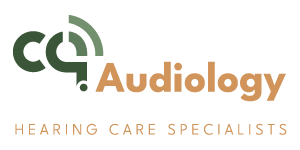
Your sudden hearing loss could stem from various causes, including viral infections, head trauma, circulatory problems, or autoimmune disorders. It can also occur from exposure to loud noises, certain medications, or inner ear conditions like Ménière’s disease. Risk factors include smoking, obesity, diabetes, and being between 40-60 years old. Since prompt medical attention within 24-48 hours improves recovery chances, understanding all potential triggers can help protect your hearing health.
Understanding Sudden Sensorineural Hearing Loss (SSHL)
A sudden sensorineural hearing loss (SSHL) occurs when you experience a rapid loss of hearing – typically within 72 hours – in one or both ears. This condition specifically affects your inner ear or auditory nerve, which are crucial components in how you process sound.
You might notice SSHL upon waking up or gradually throughout the day. Some people report a loud “pop” just before their hearing diminishes, while others describe a feeling of fullness in the ear. The hearing loss can range from mild to severe, and it’s often accompanied by tinnitus (ringing in the ears) or dizziness.
If you suspect SSHL, it’s essential to seek immediate medical attention. Early treatment, usually within two weeks of onset, significantly improves your chances of hearing recovery.
Common Medical Triggers and Risk Factors
While medical experts haven’t identified a single definitive cause of SSHL, several health conditions and risk factors can trigger sudden hearing loss.
You’re at higher risk if you have circulatory problems, autoimmune disorders, or infections like viral meningitis. Head trauma, certain medications, and inner ear conditions like Ménière’s disease can also lead to SSHL. Exposure to extremely loud noise or sudden changes in air pressure may damage your inner ear structures.
Your age plays a role too – SSHL occurs more frequently in adults between 40-60 years old. Other risk factors include smoking, obesity, and cardiovascular disease. Recent research suggests that COVID-19 infection might trigger SSHL in some patients. If you have diabetes or multiple sclerosis, you’ll need to be particularly vigilant about monitoring your hearing health.
Recognizing the Warning Signs

With so many potential causes of sudden hearing loss, knowing the early warning signs can help you take quick action. You might notice a sudden drop in hearing ability in one or both ears, often accompanied by a feeling of fullness or pressure. Some people report a “popping” sensation followed by muffled sounds, as if their ears are plugged.
Watch for other telltale symptoms like tinnitus (ringing in the ears), dizziness, or balance problems. You may find yourself asking others to repeat themselves or struggling to hear phone conversations. If you’re experiencing these symptoms, especially if they develop within 72 hours, don’t wait to seek medical attention. The sooner you get treatment, the better your chances of preventing permanent hearing damage.
Essential Steps for Immediate Treatment
Because sudden hearing loss requires swift action, knowing the right steps can make a crucial difference in your recovery. If you experience sudden hearing loss, contact your doctor or an ENT specialist immediately – don’t wait more than 24-48 hours. You’ll need a comprehensive hearing test and medical evaluation to determine the cause.
Your doctor may prescribe oral corticosteroids, which work best when started early. If you can’t take oral steroids, intratympanic steroid injections directly into your middle ear might be recommended. During treatment, protect your affected ear from loud noises and avoid water exposure. You should also track any changes in your symptoms and follow up with your healthcare provider as directed. Getting proper rest and reducing stress can support your recovery process.
Recovery and Long-Term Management
Once you’ve received initial treatment for sudden hearing loss, your recovery journey may span several weeks to months. During this time, you’ll need regular hearing tests to monitor your progress and adjust treatments as necessary.
You should protect your affected ear from loud noises and avoid activities that could impact your recovery, like scuba diving or air travel. If you’re prescribed medications, take them exactly as directed and complete the full course of treatment.
Consider working with an audiologist who can help you manage any residual hearing loss through hearing aids or other assistive devices. They’ll also teach you communication strategies and coping mechanisms. Remember to maintain follow-up appointments with your healthcare provider to ensure your hearing stabilizes and to address any lingering symptoms.
Prevention Strategies and Lifestyle Changes
Taking proactive steps to protect your hearing can help prevent sudden hearing loss and maintain your overall ear health. You can minimize risk by using ear protection when exposed to loud noises, whether at work, concerts, or while operating machinery. Keep your audio devices at moderate volumes and follow the 60/60 rule – listen at 60% volume for no more than 60 minutes.
Maintain a healthy lifestyle by exercising regularly, eating a balanced diet rich in vitamins A, C, and E, and managing stress levels. If you smoke, quit, as smoking can damage blood vessels and affect ear health. Regular check-ups with your healthcare provider can help monitor your hearing and catch potential issues early. Stay vigilant about treating ear infections promptly to prevent complications.
Support Resources and Professional Care Options
Professional support networks play a vital role in managing sudden hearing loss. You’ll find numerous specialists who can assist with your condition, including ENT doctors, audiologists, and hearing rehabilitation experts. These professionals can create personalized treatment plans and recommend appropriate hearing devices.
Support groups, both online and in-person, connect you with others experiencing similar challenges. You’ll benefit from shared experiences, coping strategies, and emotional support. Many hospitals and hearing clinics offer counseling services to help you adjust to hearing changes.
For financial assistance, check if your insurance covers hearing treatments and devices. Several organizations provide grants or payment plans for hearing aids. You can also explore advocacy groups that offer resources, educational materials, and guidance on disability rights and accommodations.
